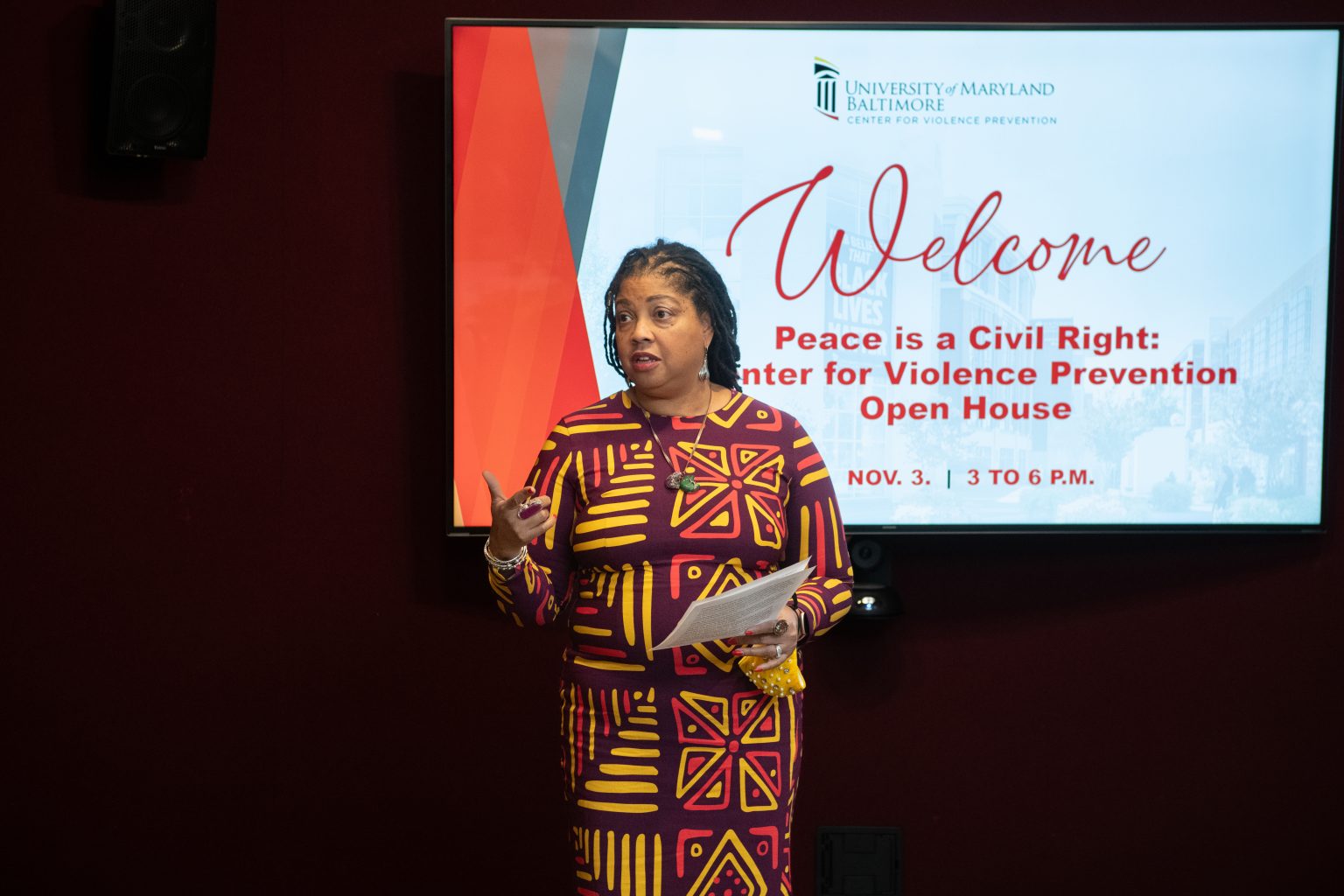Preventing Violence at Its Roots: UMB’s Center for Violence Prevention’s Pioneering Approach
January 10, 2024 Laura Lee
Learn about the center’s work under executive director Nadine Finigan-Carr in the latest issue of “CATALYST” magazine.
Photo: Executive Director Nadine Finigan-Carr speaks to visitors to the Center for Violence Prevention’s new offices during an open house in November. Photo by Matthew D’Agostino
As a college student in the 1990s, Nadine Finigan-Carr, PhD, MS, executive director of the University of Maryland, Baltimore’s (UMB) Center for Violence Prevention, thought she wanted to be a doctor.
“Like a lot of people in my generation, I knew I was going to grow up to be a doctor. I was going to med school,” Finigan-Carr said.
Two summers working as a patient advocate at New York’s Bellevue Hospital changed all that. It’s been 30 years, and Finigan-Carr is still moved close to tears recalling a shift in the emergency room where she was assigned to a young man who had been shot in the head.
“They’d done all they could to stabilize him,” she recalled. “They’d removed him from life support, and my job for the next three days was to monitor his vital signs.”
She wasn’t working when the man died, but the experience prompted a profound shift in her thinking, she says. “It really changed me. I realized I didn’t want to be there after something happened. I needed to stop the bullets from coming.”
To that end, Finigan-Carr, a prevention research scientist and internationally recognized expert on human trafficking and sexual exploitation of minors, is the inaugural executive director of the newly established UMB Center for Violence Prevention (CVP).
Funded by a $2 million gift from Betsy Sherman and the Sherman Family Foundation, CVP brings together the expertise and resources of two of Baltimore’s major anchor institutions — UMB and the R Adams Cowley Shock Trauma Center at the University of Maryland Medical Center. Finigan-Carr sees the new center as an “organizing umbrella” that will connect the numerous research and clinical programs already in place at UMB that address violence and the social determinants of health related to trauma.
The center takes a comprehensive, collaborative, and unique approach by partnering with schools, programs, and community organizations already doing related work in Baltimore. And rather than just responding after violence occurs, it aims to prevent violence on multiple levels — from primary prevention like conflict resolution skills to secondary and tertiary interventions in hospitals.
“We want to work ‘upstream’ to stop violence before it starts,” Finigan-Carr said. “That means focusing on primary prevention versus just responding after trauma occurs. We want to get mediation programs into communities so that conflicts don’t become altercations and altercations don’t become Shock Trauma visits.”
You can read the Fall 2023 issue of CATALYST magazine, which highlights the University's three new deans; UMB's many innovations such as the School of Pharmacy training students to administer long-acting injectables; community initiatives such as YouthWorks and workforce programs; UMB’s sustainability efforts to install a weather station; and much, much more!